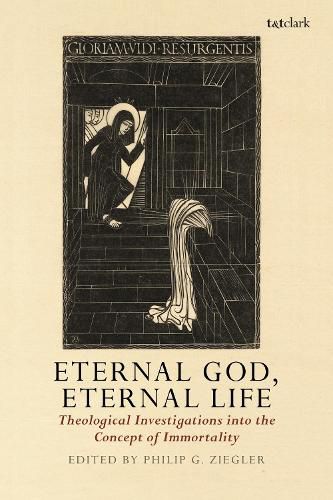Readings Newsletter
Become a Readings Member to make your shopping experience even easier.
Sign in or sign up for free!
You’re not far away from qualifying for FREE standard shipping within Australia
You’ve qualified for FREE standard shipping within Australia
The cart is loading…






How ought Christian faith and theology understand the concept of human immortality today? And what, if anything, might be distinctively Christian about such a concept? The contributors to this volume explore how our thinking about the prospect of human immortality is decisively determined by what we receive of the limitless life of the triune God of the gospel, and how our understanding of immortality is made concrete by the Christian hope in ‘the resurrection of the body and the life everlasting’.
Debates about how best to understand the eternal life of God are directly significant to how we can imagine the promise of eternal life. While immortality is generally conceived to be a future qualification of human reality, theological approaches to the question of personal immortality must investigate the difference that the hope and promise of such eternal life makes in the living of present-day spiritual life as well as in our common moral and political existence. To understand immortality as an eschatological gift of God requires that we take account of it as a formative factor at the foundations of the Christian life.
$9.00 standard shipping within Australia
FREE standard shipping within Australia for orders over $100.00
Express & International shipping calculated at checkout
How ought Christian faith and theology understand the concept of human immortality today? And what, if anything, might be distinctively Christian about such a concept? The contributors to this volume explore how our thinking about the prospect of human immortality is decisively determined by what we receive of the limitless life of the triune God of the gospel, and how our understanding of immortality is made concrete by the Christian hope in ‘the resurrection of the body and the life everlasting’.
Debates about how best to understand the eternal life of God are directly significant to how we can imagine the promise of eternal life. While immortality is generally conceived to be a future qualification of human reality, theological approaches to the question of personal immortality must investigate the difference that the hope and promise of such eternal life makes in the living of present-day spiritual life as well as in our common moral and political existence. To understand immortality as an eschatological gift of God requires that we take account of it as a formative factor at the foundations of the Christian life.